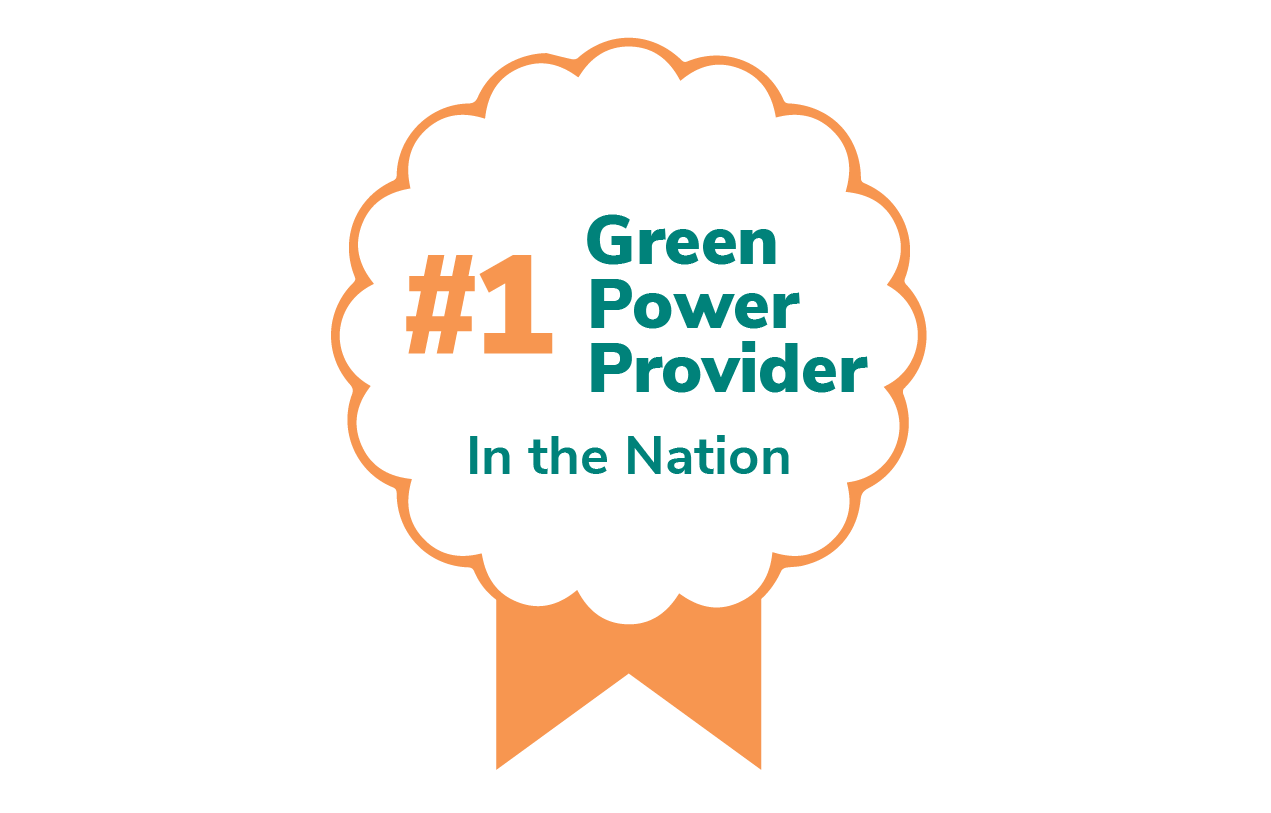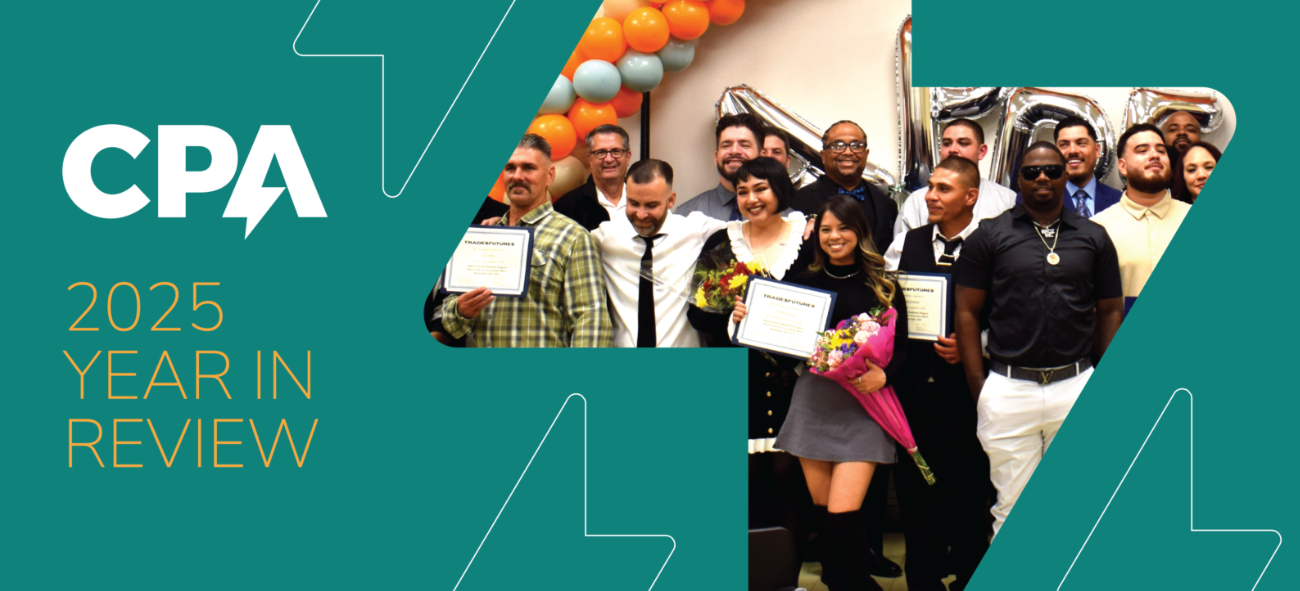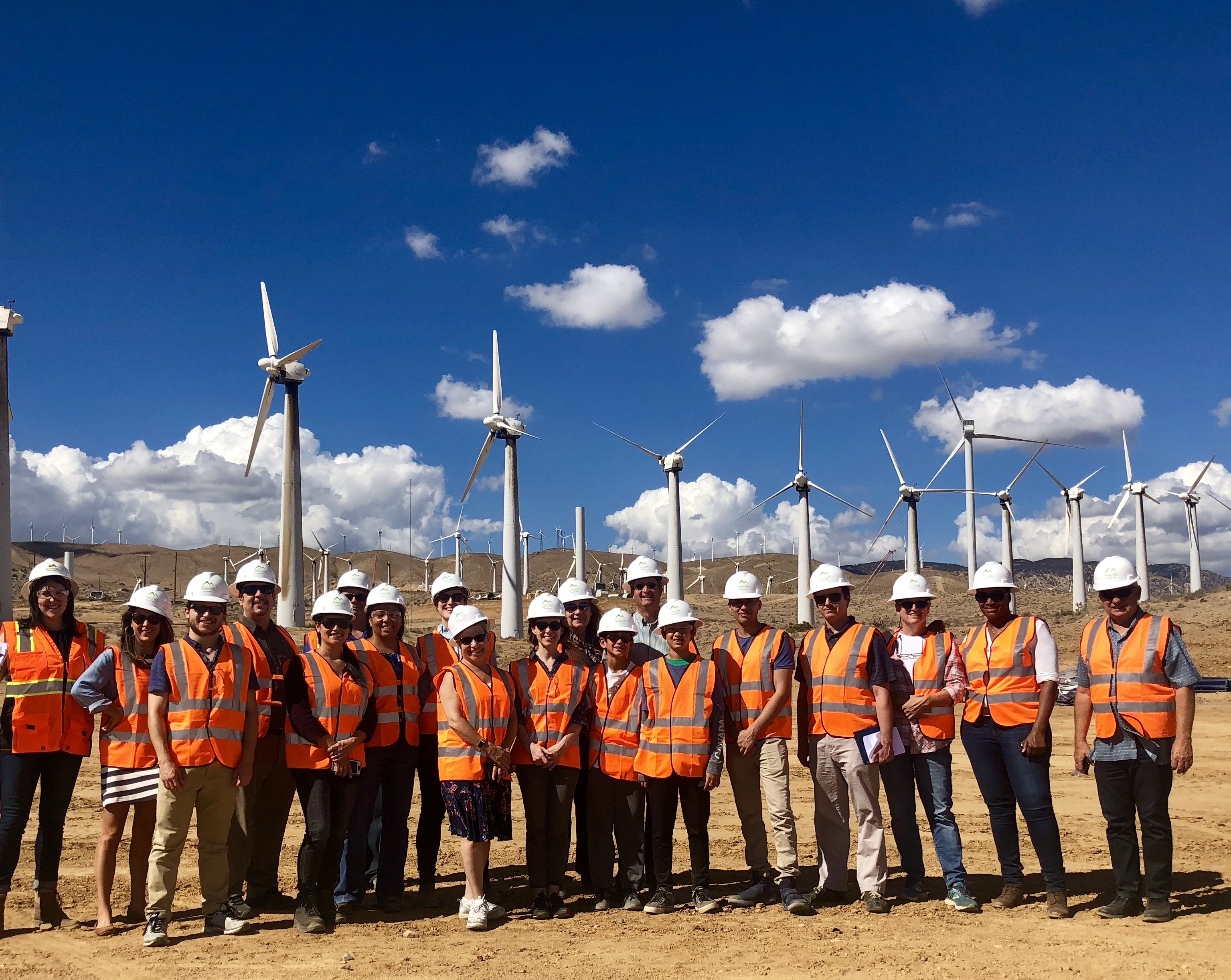In May 2019, CPA’s Board of Directors advanced a new Voyager Scholarship initiative to support students at seven community colleges throughout Los Angeles County and Ventura County.
The Voyager Scholarship provides financial aid to students enrolled in energy-driven career pathways, such as electric vehicles and advanced transportation technology, energy and environmental science, and alternative energy.
Recently, the CPA team sat down with 2021 award recipients to discuss the motivation for their academic focus on renewable energy and their long-term environmental goals.
Elijah Harnar
1. What inspired you to pursue a path in renewable energy?
I like surfing and hiking, I like being outdoors a lot. That’s where I got my drive to want to get into renewable energy, because I saw the effects of different forms of non-renewable energy on the environment. And I’d really like to change that and have a positive impact on the environment.
2. What are your long-term career goals? What environmental concerns would you like to address?
One thing I really like about this major is it gives me a lot of space. I don’t have to focus on renewable energy if I don’t want to. I can also get into wastewater treatment, and there’s different forms of water engineering, but so far I’m going to stick with renewable energy. And then long-term, I’m thinking to either get involved with a solar company or maybe get involved with the manufacturer of the solar company and work on the manufacturing aspects and the design aspects of new solar tech. I’m very into solar energy, but I’m also interested in nuclear engineering.
3. What’s your perspective on the biggest barriers to us transitioning to renewable energy right now?
I’d say some of the biggest barriers to switching from solar energy from non- renewable resources is just having to kind of change up the way that our power system works right now. The major non-renewable energy power plants will have to be phased out or retrofitted to be some different type of renewable energy. A big issue right now is where to get the mass amount of power needed to supply our nation’s energy supply. So either you’re going to have solar farms, which take up a lot of space, there’s wind, which isn’t incredibly efficient. There’s hydro, which creates a lot of environmental problems like dams. But if you’re talking about hydroelectric in the way of like ocean and tidal power, I think that could be something super interesting coming up. But one thing’s for sure is that the infrastructure is going to have to be significantly built up in the upcoming years in order to transfer away from that non-renewable source of energy.
4. How did you feel when you found out that you received the Voyager scholarship? How has it impacted you personally?
I was incredibly grateful to receive the CPA Voyager Scholarship. School is going to be a fairly large financial challenge for me to complete and just getting the scholarship significantly helped me with my education. It actually was the deciding factor in me not having to take a private loan out. So I was very grateful for that and I’m not going to have to pay that incredibly high interest loan back. I’m very thankful.
5. Is there any advice you’d give to other students looking to pursue a similar path?
I would say, find a place that you could learn that is very hands-on. Because that plays a large factor into it. I know with Covid, it was very hard to have hands-on when everything was online, but luckily all my classes are in-person here, so I’m very thankful for that.
Tony Magaña
1. What inspired you to pursue a path in renewable energy?
To be honest, I’ve been interested in electrical engineering since I was a kid. Really, it was actually because of superheroes like Iron Man. And my name is Tony – Tony Stark, Tony Magaña. That’s basically it…and then as I grew up, I started seeing people like Elon Musk and I was like, he’s pretty cool, I want to be like him. I just like seeing how influential he is. With a word he can change the world, just by tweeting something on Twitter. So I just wanted to be like that and help out. I also wanted to save the environment, because my main goal is to start working on electric vehicles. Hopefully with Tesla, maybe with Lucid, maybe another up and coming EV. And I guess my goal is not only to work for an electric vehicle company, but maybe to start my own. I would say that’s the ultimate goal.
2. How did you feel when you found out that you received the Voyager scholarship? How has it impacted you personally?
When I was notified that I won, I was pretty excited about it, because Clean Power Alliance falls right into what I want to do. The scholarship has helped me a lot, quite a bit. It helped me to pay for classes and to pay for textbooks. Textbooks are really a huge cost, and they’re really important to classes. They’ve helped me a lot this year, especially – reading my textbook caught me up in all my classes that I got behind in earlier. So yeah, it’s been a huge help.
3. What would you say is holding us back from transitioning completely to electric vehicles?
I would say it’s probably the price of them right now. Most electric vehicles are considered luxury. You know, like when you see a Tesla, it’s like, “wow, you drive a Tesla.” But I think that would be the biggest barrier right now. Once they become more affordable, I can see people getting them.
4. Are there any specific technological advancements with regards to electric vehicles you’re interested in?
There is one advancement I’d like to work on, I actually just learned about it the other day during my lab class. We were learning about capacitance. And my professor has said that batteries are not as good as capacitors because capacitors can release the charge quicker. They also charge up quickly, that’s another benefit of capacitors over batteries. So that’s one thing that I’d like to work on, maybe finding a way that we could use capacitors to power the cars instead of batteries.
5. Is there any advice you’d give to other students looking to pursue a similar path?
To other students in electrical engineering, one big piece of advice is to really pay attention in your calculus classes. Because when you get to physics, it comes back and you’re going to need it. When you’re learning calculus, especially integrals and things, you’ll think, “man, why do I need this?” But you’ll understand why. I made that mistake. And I’m still learning, you know. Every day I think of as an opportunity to learn more about my field of electrical engineering. I got into it really late. This is another piece of advice for anybody who’s in electrical engineering: you’re never really too late to learn it.




